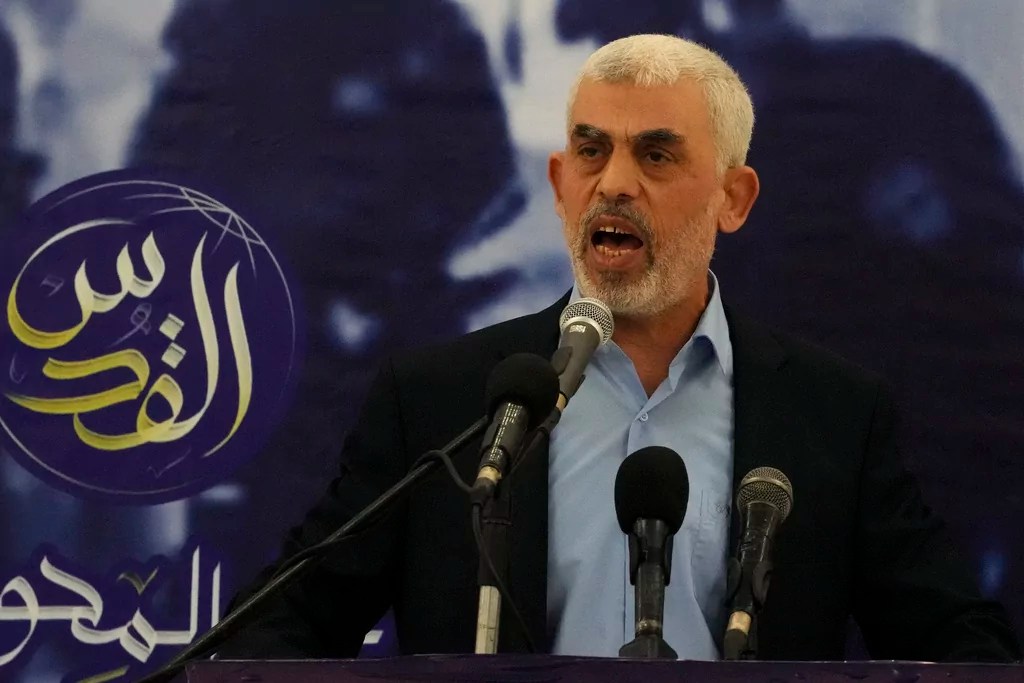The internal disruption caused by the death of Hamas leader Yahya Sinwar has inspired new hope for ceasefire talks, but the distribution of aid to Palestinians in Gaza will likely remain a major problem, not least because Hamas will continue to hijack shipments.
The top Hamas commander was killed this week when Israel Defense Forces soldiers on routine patrol of an area in Rafah encountered three militants who were then killed in a firefight. Neither the U.S. nor Israel has commented on how this unexpected end to the terrorist group’s most crucial leader may affect the charged topic of humanitarian aid.
The Biden administration recently threatened to roll back its military support from Israel if basic quantities of humanitarian aid were not transported into Gaza.
Israel has at various times rebuked demands for such accommodations for Gaza, citing how this aid is often intercepted and taken by Hamas militants after being brought into the region.

“I think the problem of aid diversion will continue, regardless of Sinwar meeting his end,” Jonathan Schanzer, senior vice president for research at the Foundation for Defense of Democracies, told the Washington Examiner.
“Hamas fighters have been diverting aid for their own personal profit, while also filling Hamas’s coffers and warehouses. I don’t see that ending any time soon, no matter who the next leader may be. This will likely continue if and when Hamas collapses entirely,” he continued.
The Biden administration published a letter to the Israeli government on Monday in which it demanded that the Jewish state take steps to improve the destitute conditions Palestinians in Gaza are experiencing.
The administration threatened to reconsider military aid if humanitarian conditions did not improve within 30 days.

The U.S. is demanding “a minimum of 350 trucks per day” entering Gaza “through all four major crossings (Erez West, Erez East, Gate 96, and Kerem Shalom), as well as opening a new fifth crossing.”
Other demands included humanitarian pauses “for at least the next four months,” “enhancing security for fixed humanitarian sites and movements,” and “rescinding evacuation orders when there is no operational need.” Israel responded by allowing 50 trucks into Gaza the following day.
Earlier this month, terrorists were spotted via aerial camera capturing dozens of trucks carrying food for citizens of the Gaza Strip.
Approximately 47 out of 100 aid trucks entering Gaza on Oct. 8 were hijacked by armed Hamas terrorists. After attacking the drivers and taking control of the vehicles, terrorists touting guns boarded and rode the trucks to a compound controlled by the group.

It was a routine operation for Hamas operatives, who resell captured food to civilians at exorbitant prices to keep a trickle of revenue.
The humanitarian problem could soon be addressed at a higher level if Sinwar’s death is parlayed into a comprehensive change in how Israel negotiates with Hamas.
Israel’s allies have reacted to the sudden elimination of Sinwar as a chance to reshuffle international negotiations and take steps to end the messy, violent campaign that’s been in Gaza since the Oct. 7 terrorist attack that the terrorist leader helped orchestrate.
CLICK HERE TO READ MORE FROM THE WASHINGTON EXAMINER
President Joe Biden believes Sinwar’s death is an opportunity to negotiate a ceasefire, preparing to send Secretary of State Antony Blinken to Israel for prospective negotiations.
“Now is the time to move on,” Biden told reporters in Berlin after arriving for a meeting with European leaders. “Move on, move toward to a ceasefire in Gaza, make sure that we move in a direction that we’re going to be in a position to make things better for the whole world. It’s time for this war to end and bring these hostages home.”
